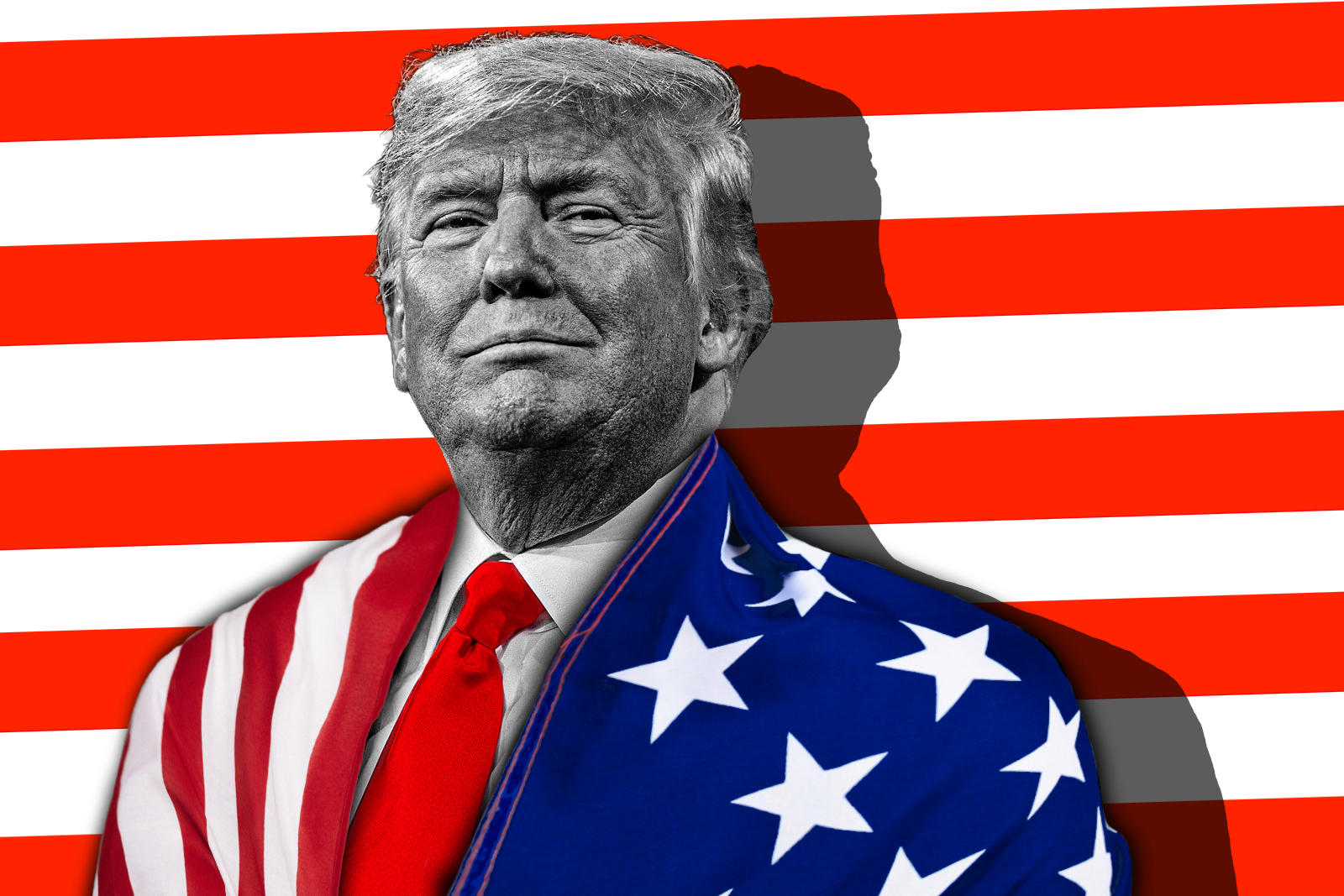
Politics
A Primer on American Dictatorship
The national dialogue has recently been saturated with a rather alarming proposition: the emergence of a dictatorship in the United States. Donald Trump, the twice-impeached former president, has notably declared that should he secure a second term, he would not shy away from assuming dictatorial power, albeit temporarily. More radically, he has intimated the suspension of constitutional elements if he were to be reinstated. This rhetoric seems to resonate with a substantial cohort of his supporters, who, according to polls, are not averse to the idea of such an authoritarian turn.
Amid this whirlwind of polemics, a critical and objective exploration into the potential reality of an American dictatorship is both useful and necessary. Although the future is inherently unpredictable, we can draw informed conjectures based on historical precedents of dictatorships.
A prospective American dictator would likely adhere to a tried-and-true dictatorial playbook: capitalizing on power obtained through democratic elections and other lawful means to increasingly centralize and entrench authority. Initially, this would involve leveraging the existing governmental apparatus to turn the state’s mechanisms against the fabric of the republic’s autonomy and independence.
A perennial maxim of autocracy is that institutions independent of the dictator’s will are perceived as either direct or latent threats to the regime. It is, therefore, in the interest of an emergent dictatorship to undermine institutions that resist direct control or manipulation. This process typically begins with the deterioration of the state’s core institutions: the legislative bodies, the corpus of laws, and, depending on the societal context, the press.
Focusing on the structure of governance, an emerging American dictatorship might perpetuate the breakdown of the separation of powers that critics argue began during President Trump’s administration. Entities such as robust regulatory agencies, transparent and accountable intelligence services, and an autonomous judiciary are antithetical to a would-be dictator’s goals. Hence, such institutions would need to be either co-opted, significantly weakened, or completely abolished.
In the United States, a complex interplay of laws and the separation of powers serve to restrain the reach of the chief executive. The Constitution and its Amendments stand as the supreme laws of the land, forming the legal bulwarks against the concentration of power. An ascending dictatorship would aim to corrode these legal defenses, challenging and undermining the laws that inhibit absolute power.
Recent political events have highlighted the importance of the Fourteenth Amendment, which categorically prevents those who have engaged in insurrection from holding high office. A dictator would likely seek to amend or invalidate this provision not only to facilitate their own legitimacy but also to ensure the installation of unqualified loyalists into positions of influence, unimpeded by their previous actions. Weakening the Fourteenth Amendment would thus be a strategic move to safeguard the dictatorship’s longevity and stability.
In the subsequent phase of establishing a dictatorship, the attention would shift to legal barriers that limit the duration of leadership terms. Predominantly, this includes the Twenty-Second Amendment. Enacted after Franklin D. Roosevelt’s fourth presidential term, it serves as a safeguard against the indefinite extension of presidential power. For a dictator aiming for potential lifelong rule, nullifying this amendment would be a critical step, one that is fundamentally incompatible with the democratic ethos of the American system.
In contemporary discourse, the word “dictatorship” often evokes the systemic suppression of civil rights and freedoms—a concern that becomes particularly palpable when we consider the prospect of such a regime on American soil. The oppressive measures a dictatorship would likely impose are not entirely foreign to us, representing an intensification of rights violations that have already been observed.
The sanctity of the vote, a pillar of democratic practice, would suffer direct assault under an American dictatorship. The clandestine encroachments on this right, already present despite their clear illegality, would escalate dramatically. Broad swathes of the populace, previously insulated from such suppression, would now confront disenfranchisement. Those groups labeled as dissident or undesirable would be excised from voter rolls with scarcely credible justification, reducing elections to a hollow ritual devoid of integrity.
The right to assemble and speak freely, intrinsic to the American ethos, would face abrogation. Recent political maneuvers—including proposals to deploy the Insurrection Act against constitutionally safeguarded protest—suggest a readiness to curtail these freedoms. An autocrat would not only enforce such measures but might also seek to augment their repressive capabilities.
In the domain of free expression, the strategies of control already visible across the political spectrum would be repurposed to stifle dissent. Speech critical of the regime, or otherwise deemed undesirable, would be targeted, leading to the detention and criminalization of the outspoken—mirroring the tactics of authoritarian states such as China and Russia. Should these suppressive efforts prove unsustainable, the regime might contemplate the drastic step of amending the First Amendment, despite the profound implications of altering such a foundational statute.
Another class of rights, which might be termed “autonomy rights,” encompasses the right to privacy, as enshrined in the Fourth Amendment, and extends to the right to bodily autonomy. The precarity of these rights has been underscored by pivotal judicial decisions, most notably Dobbs v. Jackson, which reversed Roe v. Wade and catalyzed a wave of legislative actions undermining women’s reproductive rights. Even in the absence of a formal dictatorship, the reproductive rights of a significant portion of the female population have been curtailed. Under an autocratic regime, these rights would likely face further national restrictions, emblematic of the broader erosion of personal autonomy that typifies dictatorial governance.
The genesis of dictatorships is not an overnight phenomenon; they emerge from protracted periods of societal unease, often spanning years or decades. Autocratic leaders ascend under conditions ripe with hate and prejudice, which they expertly manipulate for consolidation of power. They embody the aspirations of a faction that not only accepts but endorses the suppression of dissenting voices.
This dynamic has manifested through minority rule in various historical contexts, such as the apartheid era in South Africa, Saddam Hussein’s rule over a Shia-majority Iraq, and ongoing tensions in the Middle East. At other times, it reflects the majority’s grievances and a burgeoning impulse to marginalize minority groups within their midst.
The quintessential example of such dynamics is the Nazi party’s rise in early 20th-century Germany, where street-level loyalists served as the regime’s enforcers, embodying the violent arm of governance. A parallel could conceivably be drawn with the United States, should it succumb to a similar wave of vitriol and division.
For a dictatorship to take hold in America, it would need to harness a vast undercurrent of animosity and disillusionment. In such a scenario, the dictator becomes the personification of this animosity, the executor of the collective resentment. The regime would likely turn a blind eye—or even tacitly support—acts of domestic terror that serve to stifle opposition, effectively deploying such elements as de facto operatives of state control.
Under the shadow of authoritarianism, the situation for minority groups—who already navigate a landscape riddled with hate crimes and aggressive rhetoric—would deteriorate significantly. For communities of color, Muslims, Jews, trans individuals, and Asian Americans, the specter of increased persecution and the revival of historical fears, akin to those experienced during the Japanese internment, could become a grim reality.
The irony in this scenario is poignant: the pursuit of dictatorship is antithetical to the very ideals of the American ethos. A quest for autocracy reveals a disregard for freedom, a value deemed inalienable in the American narrative. One must question whether an individual who forsakes liberty can truly embody the principles upon which the United States was founded.
